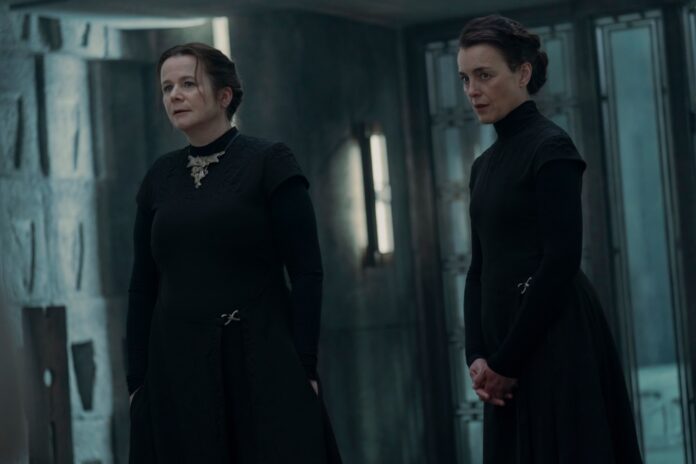Every franchise has to expand from one medium to another now; it’s the law. As such, after two movies and at least one more set to hit theaters in 2026, Dune now has a prequel TV series, Dune: Prophecy.
Set ten thousand years before the films, the show follows two Harkonnen sisters, Valya (Emily Watson) and Tula (Olivia Williams), who were instrumental in making the witchy sisterhood of the Bene Gesserit into the formidable group that shaped the events of their sci-fi world from the shadows. A group of powerful women who took an approach to molding the galaxy that was essentially very feminine, they are at once both inspirational and traditional, transcending stereotypes while adhering to them.
They fit the world which originated them like a glove, which gave us characters that adhered to tropes and used their familiarity to turn them inside out. There are no real heroes in Dune—there are merely characters we follow as their mostly good intentions make the galaxy a worse place. A series is the perfect place to expand on that, given Dune’s trademark slow place where worldbuilding is the true messiah.
Dune: Prophecy carries on this tradition, giving us complex, ruthless, at times bloodthirsty women who are devoted to making better leaders and training the young women in their still relatively new school of thought. Like us, they’re also grappling with the role AI should play in humanity (being more biased against it, having recently won a hard-fought victory against thinking machines set on enslaving humanity) and having to cope with a powerful threat to their lives and mission from the shadows.
As witches, royals, and those amassed around them each wrestle with ideals and hard choices, the show’s cerebral approach demands some patience and sticking with characters who prove to be the anti-heroines their onscreen foremothers could never have dreamed of playing, notably including an injection of sweaty spice that has nothing to do with Arrakis. For a mere six episodes, it might be too slow going and too much for those not invested in the original story, since it still seemed to have quite a bit left to unpack even in episode four. But what it does provide is an intriguing story where even the main characters give us anxiety for their seeming disposability. TV-MA, six hour-long episodes
Max







